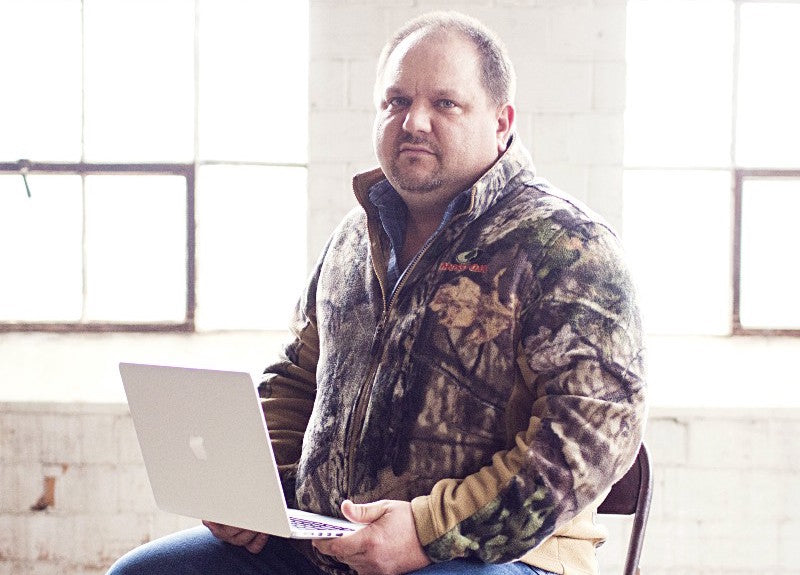
J. Paul Gorman, one of Appalachia’s newest coders. Photo by Philip Scott Andrews.
Coal is dead. There, I said it. It's a tough pill for Appalachia to swallow—where coal has underpinned local economies for more than a century, where it's given folks who hold nothing but high school diplomas a path to the middle class—but those days are going, going, gone.
Local leaders, though, didn't get the memo. Maybe they're holding out for some imaginary coal revival. Maybe they don't have the skills to attract new industries or foster entrepreneurship. Maybe they're just scared. Why doesn't matter much. Their inaction leaves many thousands of mining families in dire straights.
We've all heard about former miners working for a fraction of their prior pay, selling their trucks, cars, or even homes to put food on the table. We've read about soaring public assistance rates due, in part, to laid off miners dragging themselves to social service offices, hats in hands, having to ask for help. It's like there's a big gash right across the heart of Appalachia, and no one is even applying direct pressure.
Sure, a bill is weaving through Congress that could infuse $1 billion into coal country, but the Tea Party has a stranglehold on Washington. Sticking to their promise to downsize government, these extremists kill anything that resembles new spending, even if it might help the people who elected them. These days, it's easier for a camel to pass through the eye of a needle than for a social program to pass on the hill, and some folks are just tired of waiting.
In eastern Kentucky, former miners are taking economic recovery into their own hands. They've started BitSource, a training ground for would-be coders and a consultancy that hopes to land clients from around the world.
Writer Lauren Smiley recently visited this crew and in the below article, captures the kind of determination and ingenuity it'll take to turn mining communities around. But is it enough? Can a tech start-up make it big in a Kentucky coal town? And how else can we help our Appalachian neighbors get back on their feet?
If you have coal stories or ideas for improving life in coal country, please leave a comment below.
***
Rusty Justice doesn’t think about Michael Bloomberg very often. But when he does — even if it’s just for a moment — it’s like remembering the gloating rich kid who stole his lunch.
The distaste started when the New York City billionaire donated $50 million to the Sierra Club’s Beyond Coal campaign back in 2011, and continued when he poured in another $30 million this year. Rusty, you see, runs a land-moving company in Eastern Kentucky, and the anti-coal movement is playing a big role in systematically closing down the industry he’s worked around all his life.
Say what you will about the long-term environmental effects (Justice, for one, is very pro-coal) but the impact on the area’s one-source economy has been brutal. Some 8,000 miners have been laid off in the last four years — that’s more people than the entire population of Justice’s hometown, Pikeville. On the road to a cleaner energy future, the surrounding neck of Appalachia is looking like roadkill.
But Rusty’s unease with Bloomberg turned into a gut-deep animus last year, when the self-confessed hillbilly—if you’re from this part of the world that’s a self-identifier, not an insult—sat down for his weekly, three-hour, Saturday morning news-reading session. That’s when he came across Bloomberg’s latest jab.
“You’re not going to teach a coal miner to code.”














